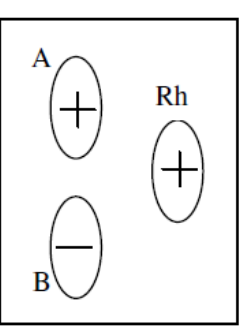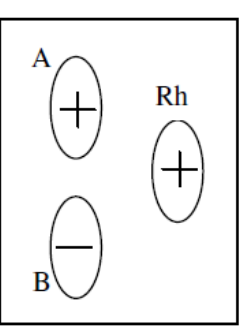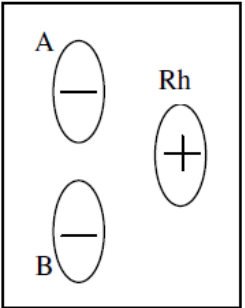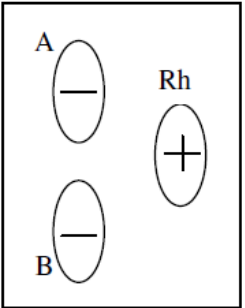Forensics Unit 10 Test Review
1/60
There's no tags or description
Looks like no tags are added yet.
Name | Mastery | Learn | Test | Matching | Spaced | Call with Kai |
|---|
No analytics yet
Send a link to your students to track their progress
61 Terms
Agglutination
Network of clumped blood cells called coagulated blood.
Antibody
Y-shaped protein made by white blood cells that circulates in the bloodstream as part of our immune system.
Antigen
Proteins on the outside of the red blood cells that match blood type.
Antigen-antibody response
Reaction in which antibodies attach to a specific antigen.
Blood
Circulating tissues made of red blood cells, white blood cells, plasma, and platelets. Blood transports nutrients and waste in and out of cells like oxygen, carbon dioxide, waste, vitamins, and minerals.
Plasma
Carries antibodies, hormones, clotting factors, nutrients, amino acids, salt, and minerals throughout the body.
Platelets
Clotting (coagulation) factors in the plasma that help repair damaged blood vessels.
Red Blood Cells
DNA-less cells that transport respiratory gases like oxygen, carbon dioxide, and waste from all parts of the body.
White Blood Cells
Cells that contain nucleus DNA and work with the immune system to destroy infectious agents (pathogens) by digesting it or secreting antibodies.
What antigen is type A?
Antigen A
What antibody is type A?
Antibody B
What antigen is type B?
Antigen B
What antibody is type B?
Antibody A
What antigen is type AB?
Both antigen A & B
What antibody is type AB?
Neither antibody A/B
What antigen is type O?
Neither antigen A/B
What antibody is type O?
Antibody A/B
What blood type is the universal receiver?
Type AB
What blood type is the universal donor?
Type O
What 4 types of evidence is blood type?
Indirect, physical, biological, & class
What 4 types of evidence is blood containing white blood cells?
Indirect, physical, biological, & individual
Why do crime scene investigators locate and analyze blood evidence?
Blood evidence is analyzed to determine if the evidence is consistent with the account of the suspects. (Blood tells a story.)
T or F? Blood typing is used to exclude a suspect rather than to identify a suspect
True

What is suspect 1’s blood type?
What blood type can they donate to?
Type A+
Can donate to: A+ and AB+


What is suspect 2’s blood type?
What blood type can they donate to?
Type O+
Can donate to all 3 POSITIVE blood types (A+,B+,AB+)

Can a positive blood type donate to a negative blood type?
No
Can a negative blood type donate to a positive blood type?
No
If you are Rh+, can you receive to +/-?
You can receive to both Rh+ and Rh-.
If you are Rh-, can you receive to +/-?
You can only receive Rh-.
Area of Convergence
Angle of Impact
Point of Origin
Kastle-Meyer Test
Luminol
How do the spines and satellites change as the height from which the drop falls increases?
Will the drop size continue to increase as the height increase or is there a pint at which the drop diameter will remain the same? If yes, why? If no, why not?
Low velocity drop size
More than 4mm
Medium velocity drop size
1-4mm
High velocity drop size
less than 1mm
Low velocity injury examples
Medium velocity injury examples
High velocity injury examples
Arterial Gush
Arterial gush example
severed artery due to injury or attack
Cast-off pattern
Blood released from a moving, bloody object
Cast-off pattern example
Repeated striking with a weapon. Strike 2 begins with the pattern.
Expired blood pattern
Blood blown out from nose, mouth, or wound due to air flow.
Expired blood pattern example
Injury causing internal bleeding, body trying to expel blood
Passive blood pattern
round drops or pools of blood caused by the force of gravity
Passive pattern blood example
Person walking while bleeding
Swipe blood pattern
Created by moving object leaving a bloodstain
Swipe blood pattern example
Bloody hand moving from wall
Transfer/contact blood pattern
When a wet, bloody object comes in contact with a target surface
Transfer/blood pattern example
Person stepped in blood or pressed a hand on a bloody surface & transferred blood
Void blood pattern
Object blocks the deposition of blood spatter
Void blood pattern
Object moved after injury occurred
Wipe blood pattern
An object moving through a partially dry bloodstain
Wipe blood pattern example
Trying to clean up or remove blood from a surface
How is “invisible“ or traces of blood detected at a crime scene?
What is the proper way to collect blood evidence? How is it stored?
Blood is a transportation and communication system. What does this mean?
Blood is a transportation system that allows communication between cells and organs using the bloodstream and also hormones.